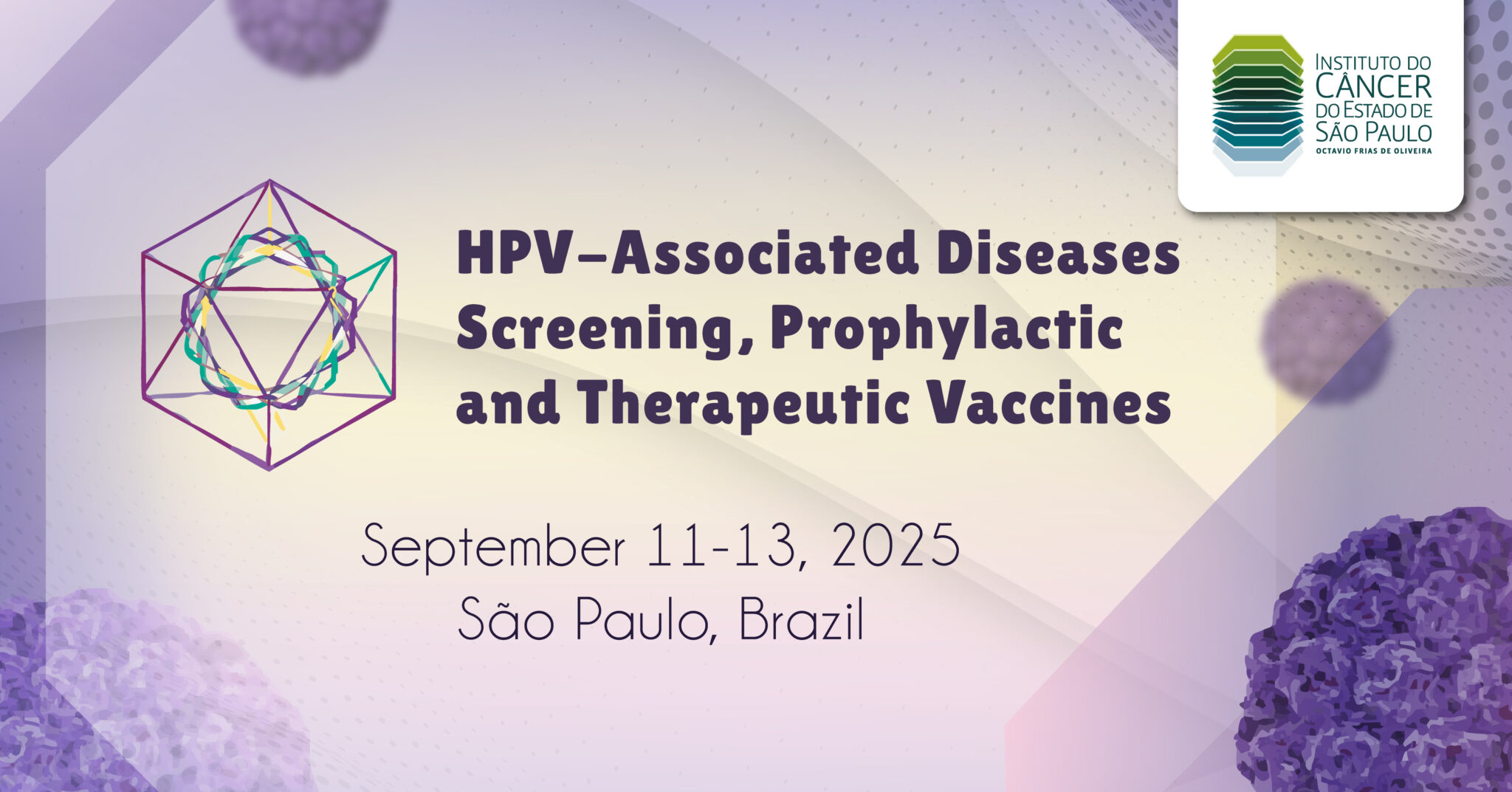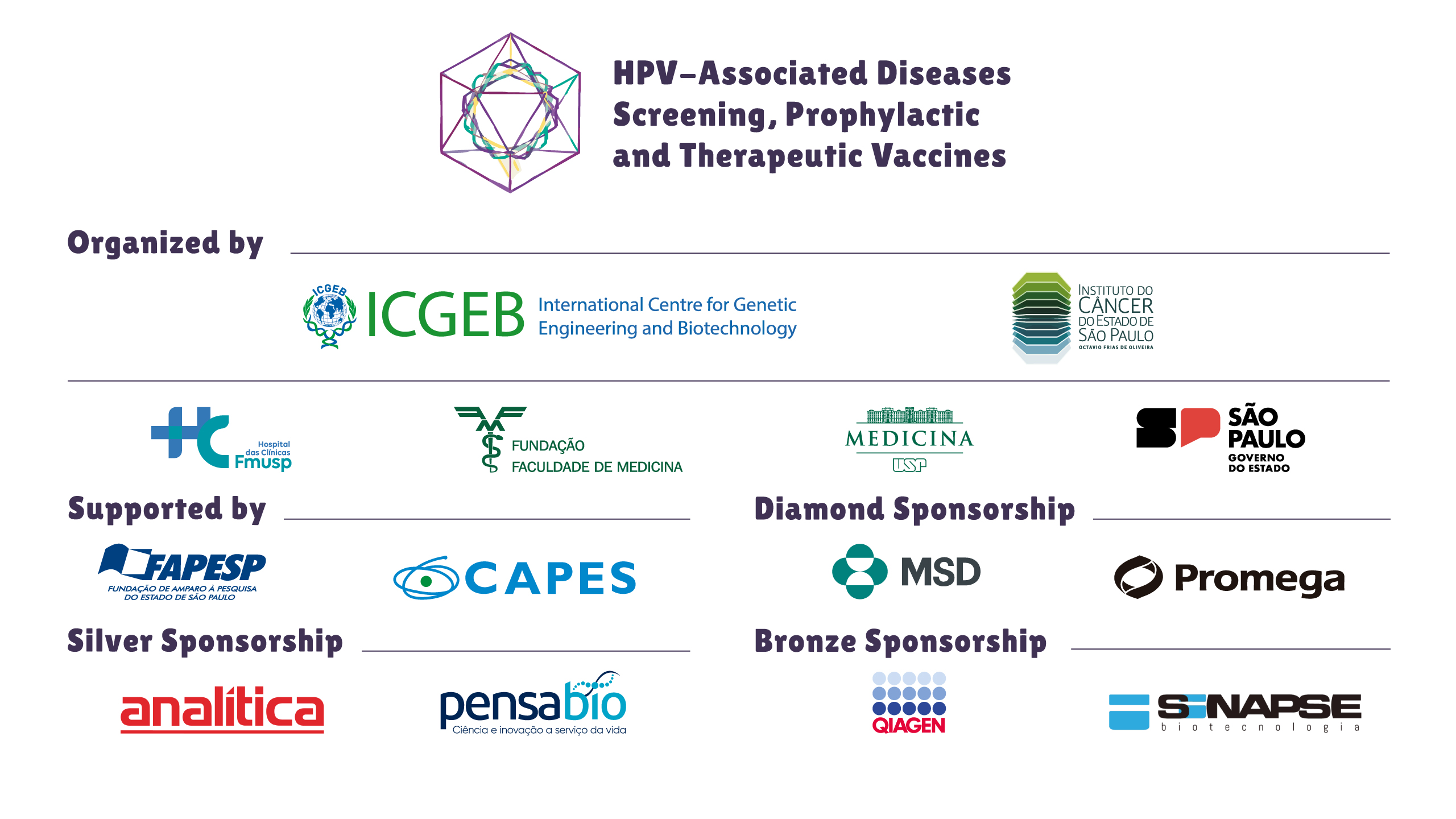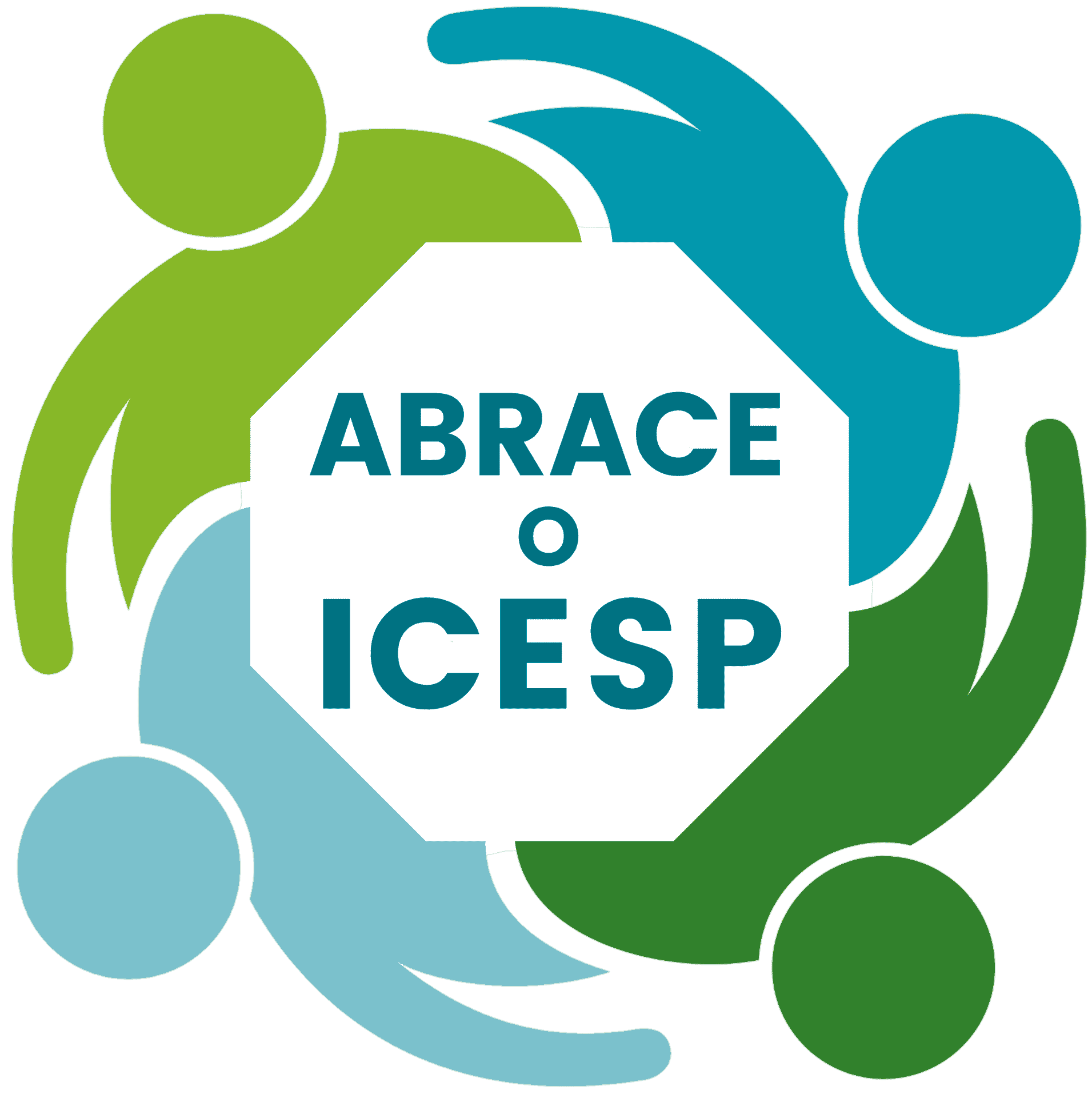
We meet in
We are pleased to announce the “HPV-Associated Diseases: Screening, Prophylactic and Therapeutic Vaccines” meeting, which will take place from September 11-13, 2025, in São Paulo, Brazil.
This event is supported by the International Center for Genetic Engineering and Biotechnology (ICGEB). The goal of the conference is to bring together researchers and advance both basic and applied research in the understanding of HPV infection, as well as discuss innovations in prophylactic vaccines and therapeutic approaches to combat HPV-related diseases. By fostering collaboration between experts in molecular biology, immunology, clinical research, and public health, this meeting aims to drive forward breakthroughs that can have a significant impact on HPV prevention and treatment. The conference will provide an opportunity for regional scientists and internationally recognized experts to present their work, exchange ideas, and inspire future developments in a global forum.
The meeting will be held exclusively in person, allowing attendees to access conferences, keynote lectures, and oral poster presentations. In-person activities will include meeting with the experts sections and social events, offering participants the chance to network, collaborate, and share insights that can translate into real-world benefits for public health.
The venue, the Cancer Institute of São Paulo (Instituto do Câncer do Estado de São Paulo – ICESP), is one of Brazil’s top medical and research centers. ICESP is centrally located in São Paulo, with easy access to hotels, restaurants, entertainment, and transportation.
Contact: hpv.icgebmeeting@hc.fm.usp.br
Laura Sichero
Luisa Lina Villa
Ana Paula Lepique
Aline Lopes Ribeiro


Categories | Early rateuntil July 21, 2025 | Late rateafter July 21, 2025 |
| Undergraduate and graduate student | R$ 200,00 | R$ 300,00 |
| Post-docs and resident fellows | R$ 380,00 | R$ 470,00 |
| Professional academic or industry | R$ 650,00 | R$ 800,00 |
The ICGEB will award a number of fellowship grants to scientists with passport from ICGEB member states.
The ICGEB grants will cover the following benefits:
Eligibility
ICGEB grants will be given to applicants who are nationals of ICGEB member states. Priority will be given for Early Career Scientist who are nationals of ICGEB Membership States. Applications from Brazilians who reside more than 150 Km from Sao Paulo are welcome, but will be waitlisted until evaluation of all other applications is complete.
Selection process
Selection for the grant will be based on a competitive selection process where the applicant’s expertise, topic of study, career stage (earlier is better) and geographic location (priority for South America) will be evaluated.
How to apply
To submit your request, using the link below. Applicants must submit an abstract and register on the Congress website after receiving the approval.
Deadline: June 15, 2025 [CALL FOR APPLICATIONS NOW CLOSED]
Share your research! To submit an abstract, please review the guidelines below and then press “Submit an Abstract”:
Selected participants will have the opportunity to present their current research. Abstracts will be considered for either oral or poster presentation. You must REGISTER for the meetings BEFORE you submit your abstract. Abstracts should focus on unpublished material.
Be certain your abstract includes all the necessary elements:
Guidelines:
The submission process is now closed.
Instituto do Câncer do Estado de São Paulo (Icesp) | Av. Dr Arnaldo, 251 – São Paulo – SP – CEP: 01246-000
São Paulo, the largest city in Brazil and one of the largest in the world, is a vibrant center of culture, business, and diversity. The event will be hosted at ICESP (Instituto do Câncer do Estado de São Paulo), nestled in the vibrant heart of this dynamic metropolis at Pinheiros neigborhood.
Situated in the western zone of the city, Pinheiros is known for its cosmopolitan atmosphere where tradition and modernity blend seamlessly. Its tree-lined streets are home to a myriad of restaurants, bars, art galleries, and eclectic shops, reflecting São Paulo’s cultural and gastronomic diversity.
The following hotels have special discounted rates available. To take advantage of these discounts, please access the hotels through the provided link.
Radisson Pinheiros
Rua Cristiano Viana, 318 [1,5km from ICESP]
Quality Oscar Freire
Rua Oscar Freire, 1948 [1km from ICESP]
Transamerica Bela Cintra
Rua Bela Cintra, 1356 [1,7km from ICESP]
Radisson Oscar Freire
Rua da Consolação, 3555 [1,8km from ICESP]

This event is financed, in part, by the São Paulo Research Foundation (FAPESP), Brasil. Process Number 2024/19386-0.
Todos os direitos reservados © Copyright 2022 | ICESP
Todos os Direitos Reservados © Copyright 2022 | ICESP
É o tratamento que utiliza iodo radioativo (Iodo-131) para o controle dos carcinomas diferenciados da glândula tireoide.
O objetivo é combater às células cancerígenas que ainda restaram na tireoide após a cirurgia (tireoidectomia) ou metástases, sendo destruídas através da radiação emitida pelo iodo.
Os pacientes recebem orientação para realização de uma dieta pobre em iodo, no período que antecede a internação, através do nutricionista ambulatorial. Evitam o consumo de sal iodado, sal marinho e alimentos salgados, pois são fontes de iodo.
• Enxágue a boca com água pura antes das refeições ou faça bochechos com chá de camomila antes das refeições.
• Experimente balas azedas e/ou ácidas ou gotas de limão (30 gotas em 1 copo de 200ml) ou gelatina de limão (caso não apresente feridas na boca).
• Use temperos naturais em maior quantidade, como: manjericão, orégano, salsinha, hortelã, alecrim, coentro, por exemplo.
• Substitua os talheres de metal pelos de plástico, caso sinta sabor residual metálico.
• Mantenha boa higiene bucal.
• Consumir alimentos muito quentes ou muito gelados.
• Preparar sua refeição na consistência que for mais bem tolerada, que ofereça menor dificuldade para mastigar ou engolir, podendo variar entre branda, pastosa ou líquida (conforme avaliação da fonoaudióloga).
• Tomar pequenos goles de água ou suco durante as refeições podem ajudar a engolir.
• Faça as refeições em pequenas quantidades, várias vezes ao dia.
• Consuma alimentos macios e pastosos.
• Prefira alimentos gelados ou à temperatura ambiente.
• Se necessário, utilize alimentos líquidos ou liquidificados.
• Alimentos ácidos, picantes ou muito salgados.
• Alimentos muito quentes.
• Prepare as refeições com caldos ou molhos.
• Se não houver feridas na boca, chupe balas azedas e/ou ácidas, picolés ou gelo e mastigue chicletes (de preferência sabor menta), que podem ajudar a produzir mais saliva.
• Consumir líquidos em abundância: chás, sucos diluídos e, principalmente, água.
• Comer alimentos secos.
• Consuma líquidos em abundância (chás, sucos diluídos e principalmente água).
• Prefira frutas laxativas: ameixa, laranja, mamão, abacate, ameixa seca, manga, banana nanica.
• Consuma as frutas com casca e bagaço, quando possível.
• Consuma preferencialmente hortaliças cruas (legumes e verduras).
• Consuma farelo de cereais (arroz, aveia ou trigo).
• Consuma produtos integrais (arroz, pães e torradas).
• Consuma leguminosas regularmente (ervilha, feijão, grão de bico, lentilha, soja, por exemplo).
• Consuma leite e derivados: iogurte, leite fermentado, mingau de aveia.
• Alimentos constipantes, como ricota fresca, queijo branco, sagu, tapioca, maisena, banana prata, banana maçã, pera, goiaba e maçã sem casca e sem sementes, caju.
• Consuma líquidos em abundância: chás, sucos coados e principalmente água.
• Procure ingerir alimentos como batatas, chuchu, cenoura cozida, aipim, inhame, cará, creme de arroz, arroz, macarrão com molho caseiro coado, farinhas, torradas, biscoito água e sal ou de maisena, carnes grelhadas (frango, peixe ou boi).
• Prefira sucos de frutas coados: limonada, caju, maçã e laranja sem açúcar.
• Prefira leite de soja.
• Consuma as frutas: banana-maçã, maçã e pera sem casca, goiaba sem casca e semente, caju.
• Consuma apenas o caldo de leguminosas (feijão, ervilha, lentilha, grão de bico).
• Leite e derivados.
• Alimentos gordurosos (manteiga, toucinho, banha, creme de leite, por exemplo).
• Frutas cruas em geral.
• Frutas e sementes oleaginosas (abacate, coco, nozes, amêndoas, amendoim, castanhas).
• Condimentos picantes (páprica, pimenta, mostarda, ketchup, por exemplo).
• Conservas em geral (picles, azeitona, palmito, aspargos, milho e ervilha).
• Embutidos (salsicha, linguiça, presunto, salame, mortadela, por exemplo).
• Leguminosas (feijão, ervilha, lentilha, grão de bico).
• Hortaliças cruas: legumes e verduras folhosas.
• Alimentos que causam flatulência (gases), como couve-flor, brócolis, repolho e ovo.
• Prefira alimentos gelados ou em temperatura ambiente.
• Faça pequenas refeições em menor intervalo de tempo.
• Coma devagar e mastigue bem os alimentos.
• Beba sucos ou chupe gelo ou picolé de frutas cítricas, como limão (se não estiver com feridas na boca) nos intervalos das refeições.
• Realize suas refeições em lugares bem arejados.
•Frituras e alimentos gordurosos.
•Doces concentrados, como compotas, goiabada, marmelada.
•Condimentos fortes (pimenta, ketchup, mostarda, molho inglês, por exemplo).
•Deitar-se após as refeições.
•Ficar próximo à cozinha durante o preparo das refeições.
Banco Santander 033
Agência 0201
Conta Corrente 13-005061-5
Fundação Faculdade de Medicina/ICESP
CNPJ 56.577.059/0006-06
